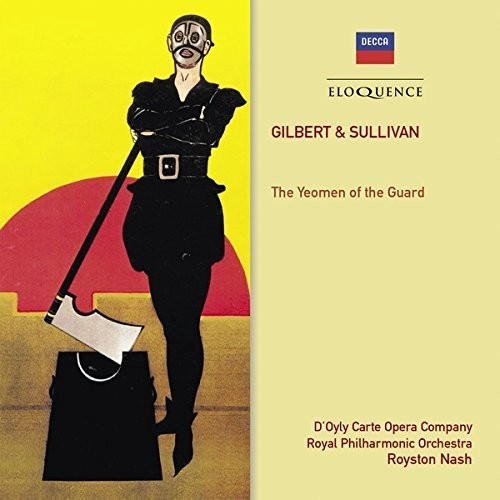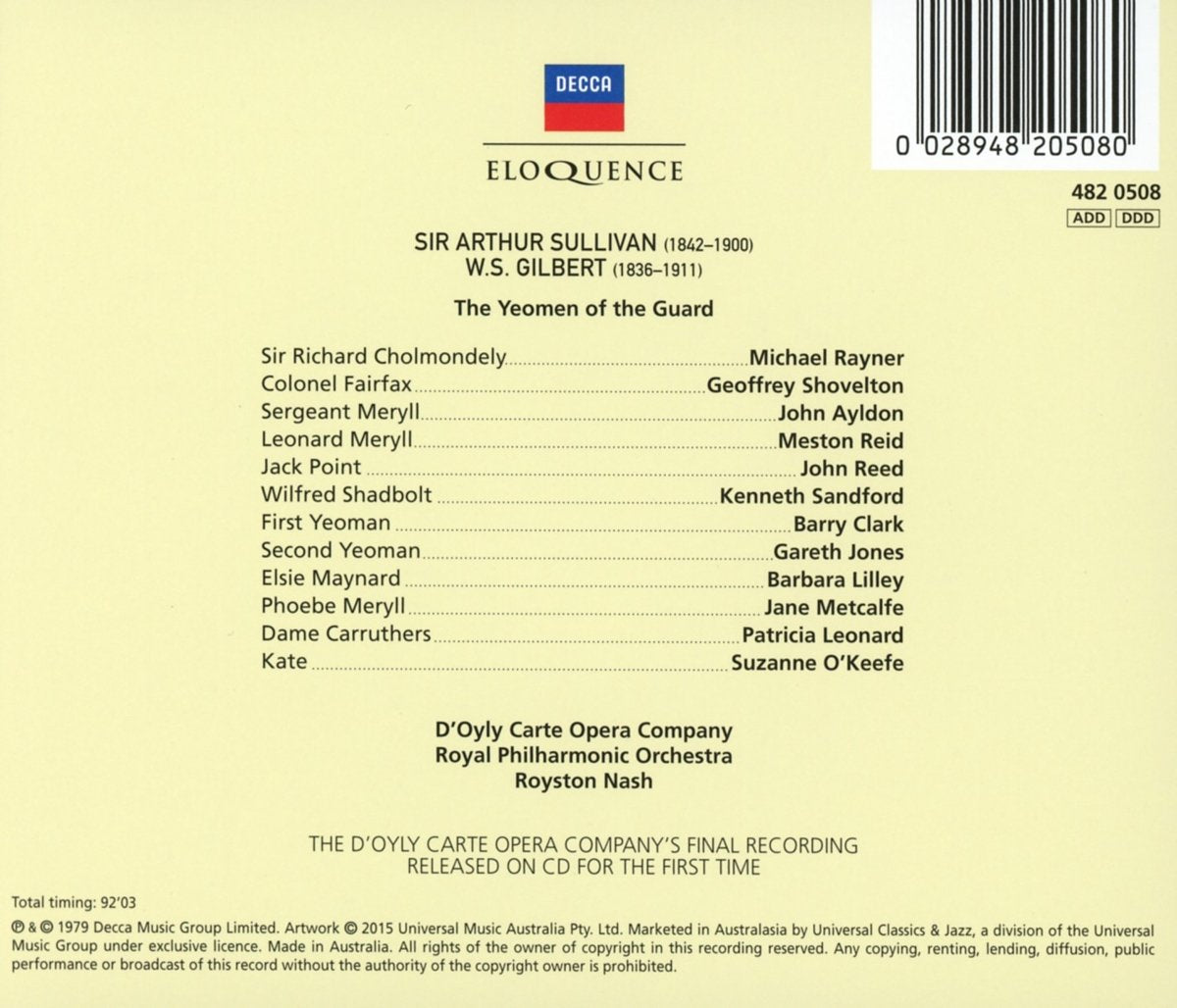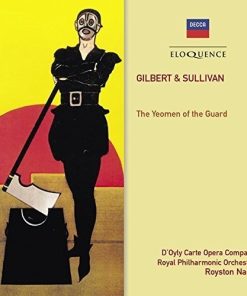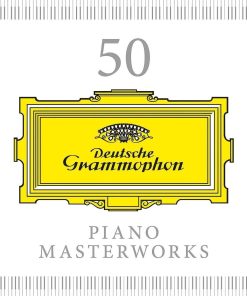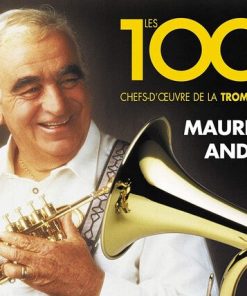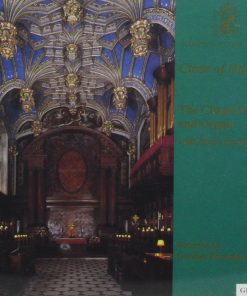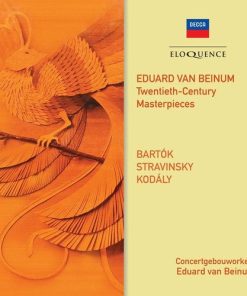GILBERT & SULLIVAN: YEOMAN OF THE GUARD (2 CDS) DECCA
$ 16,99 $ 10,19

With its roots in the mid-nineteenth century English opera tradition of Balfe and Wallace, ‘The Yeomen of the Guard’, is an integrated hybrid of operetta and romantic opera that combines the sparkling essence of previous Savoy successes with heightened drama and emotion while its score is also free from the earnestness in which much of Sullivan’s 1891 grand opera ‘Ivanhoe’ (with libretto by Julian Sturgis) is mired.
It is fair to say that despite maintaining high artistic standards and attracting loyal audiences, the overriding story of the D’Oyly Carte Opera Company in the late 1970s and early 1980s is not a happy one. Under-resourced and under constant threat of closure, the company which had been founded by Richard D’Oyly Carte in 1875 to perform new works by Gilbert and Sullivan struggled-on under an increasingly threatening cloud of uncertainty until eventually giving its final performance on 27th February, 1982. Yet there is no sign of this gloomy atmosphere in the present recording – the company’s last – of ‘The Yeomen of the Guard’. Neither, other than a few rough edges which could easily have been fixed with retakes if there been enough time or money, does it suffer too much from the unconducive circumstances of the sessions. Taped at Decca’s West Hampstead studios in the miserable depths of winter 1979 with many of the cast suffering from flu, sessions were crammed almost unfeasibly into the company’s busy performance schedule.
The set boasts many glories, not least the final recorded performances of much-loved veteran stars, John Reed and Kenneth Sandford, both of whom had been with the company since the 1950s. Though a little past their vocal prime, they give masterful portrayals of the lead comedy roles of jester, Jack Point and gaoler, Wilfred Shadbolt. Reed retired from the company shortly after this recording, continuing to guest star until its closure; Sandford remained until the end.
The set is also notable for including the first professional recording of a song which was cut immediately after the work’s premiere – Sergeant Meryll’s ‘A laughing boy but yesterday’, rendered with confidence by John Ayldon. That this recording was made at all is remarkable; that it is, on the whole, a success is miraculous. Though tinged with sadness – the 104-year-old company had just three more years to live – it is a fine swan-song recording for the D’Oyly Carte.
This the first release of this recording on Decca CD.

‘Royston Nash keeps the score moving along agreeably, and there are some attractive new voices – above all the Fairfax and Elsie Maynard of Geoffrey Shovelton and Barbara Lilley – to add to such familiar and dependable old-stagers as John Reed and Kenneth Sandford.’ Gramophone

ARTHUR SULLIVAN
W.S. GILBERT
The Yeoman Of The Guard
Sir Richard Cholmondel: Michael Rayner
Colonel Fairfax: Geoffrey Shovelton
Sergeant Meryll: John Ayldon
Leonard Meryll: Meston Reid
Jack Point: John Reed
Wilfred Shadbolt: Kenneth Sandford
First Yeoman: Barry Clark
Second Yeoman: Gareth Jones
Elsie Maynard: Barbara Lilley
Phoebe Meryll: Jane Metcalfe
Dame Carruthers: Patricia Leonard
Kate; Suzanne O’Keefe
D’Oyly Carte Opera Company
Royal Philharmonic Orchestra
Royston Nash
THE D’OYLY CARTE OPERA COMPANY’S FINAL RECORDING RELEASED ON DECCA CD FOR THE FIRST TIME
Fast Shipping and Professional Packing
Due to our longstanding partnership with UPS FedEx DHL and other leading international carriers, we are able to provide a range of shipping options. Our warehouse staff are highly trained to pack your goods exactly according to the specifications that we supply. Your goods will undergo a thorough examination and will be safely packaged prior to being sent out. Everyday we deliver hundreds of packages to our customers from all over the world. This is an indication of our dedication to being the largest online retailer worldwide. Warehouses and distribution centers can be located in Europe as well as the USA.
Orders with more than 1 item are assigned processing periods for each item.
Before shipment, all ordered products will be thoroughly inspected. Today, most orders will be shipped within 48 hours. The estimated delivery time is between 3-7 days.
Returns
The stock is constantly changing. It's not entirely managed by us since we are involved with multiple parties such as the factory and our storage. The actual stock can fluctuate at any time. Please understand it may happen that your order will be out of stock when the order is placed.
Our policy is valid for 30 days. If you haven't received your product within 30 days, we're not able to issue either a return or exchange.
You are able to return a product if it is unused and in the same condition when you received it. It must also still remain in the original packaging.
